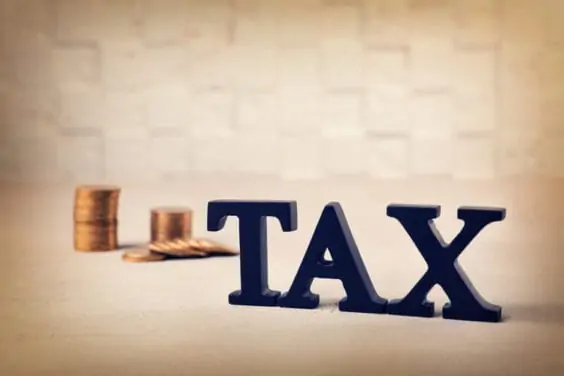Nunavut has limited infrastructure and a restrictive supply chain, and the cost of living is higher. So, it is no surprise that Nunavut offers one of the highest minimum wages in Canada at a rate of $16.00 per hour.
The current minimum wage in Nunavut is $16 per hour, and this has been effective since April 1, 2020. The rate is reviewed every April and, if required, is adjusted based on the cost of living.
Nunavut has no extensive history of minimum wage changes since it only became an independent territory in 1999.
A brief overview of the minimum hourly wage rates in Nunavut:
- April 1, 2020: $16
- March 2, 2016: $13
- January 1, 2011: $11
- September 5, 2008: $10
- March 3, 2003: $8.50
The minimum wage of $16 an hour is the bottom line for employees in this territory. However, earning capacity can be higher.
While there is no age restriction to be eligible for this minimum wage, there are other restrictions to keep in mind.
Some of these restrictions pertain to trappers or workers at commercial fisheries. If lodging or boarding is provided for the employee, the employers here are allowed to deduct the cost from the employee’s salary.
Since these sectors amount to a significant portion of the territory’s economic output, this would apply to a large amount of the population.
A worker can also be exempt if they are a student in certain professions that are not regulated by the Labour Standards Act.
Since taxes in Canada are progressive, the amount you pay is dependent on your income threshold. Nunavut also follows a progressive structure for its territorial taxes.
Nunavut has one of the lowest tax rates in the country. Here is a list that outlines the tax rates for different incomes in 2023:
- Up to $50,877: 4%
- $50,878 to $101,754: 7%
- $101,755 to $165,429: 9%
- $165,430 and over: 11.50%
The federal taxes (paid in addition to the territorial taxes) are as follows:
| Tax Bracket 2023 | Tax Rate 2023 |
|---|---|
| Up to $53,359 | 15% |
| $53,360 to $106,717 | 20.50% |
| $106,718 to $165,430 | 26% |
| $165,431 to $235,675 | 29% |
| $235,676 and over | 33% |
The federal basic personal amount (BPA) is $15,000, and Nunavut’s amount is $17,925.
This means you don’t pay federal taxes on the first $15,000 earned and territorial taxes on the first $17,925 earned.
Most wage deductions are standard across the country.
The Labour Standards Act protects employees by prohibiting employers from making unwarranted deductions. The Act makes it clear that the employee must authorize this in writing if there is a need for further deductions.
Canada Pension Plan
Canadian workers are obligated to contribute to the Canada Pension Plan. The first $3,500 is exempted annually, and then 5.95% is calculated on your remaining income for the year, and this is divided across your paycheques. CPP contributions result in pension payments when you retire.
Employment Insurance
Both the employer and employee pay Employment Insurance. At 1.63%, the maximum insurable amount is $61,500. The employee makes a maximum annual contribution of $1,002.45.
Income Tax
Income Tax is one of the other deductions, as covered above.
Others
If there are court orders related to alimony, child support, insolvency, or any other valid legal deductions, these can be taken from the paycheque.
It will become the employer’s responsibility to deduct the amount according to the court order.
The minimum wage is reviewed every April and accounts for the cost of living in the territory.
Nunavut’s minimum wage was last increased in 2020, and due to the rising costs of living across the country and high inflation rates, there have been calls to increase it in 2023.
Based on news reports, the government plans to review the minimum wage later this year to ensure it can be considered a living wage.
Minimum Wage in Canada
Here is a chart for the minimum wage rates across Canada:
| Province | Minimum Wage Rate |
| Alberta | $15.00 general workers; $13.00 for students under 18 (less than 28 hrs/week when school is in session) |
| British Columbia | $16.75 general workers; $16.75 for liquor servers |
| Saskatchewan | $14.00 |
| Manitoba | $15.30 |
| Ontario | $16.55 general workers; $15.60 for students under 18 (less than 28 hrs/week) |
| Québec | $15.25 |
| New Brunswick | $14.75 |
| Nova Scotia | $15.00 |
| Prince Edward Island | $15.00 |
| Newfoundland & Labrador | $15.00 |
| Yukon | $16.77 |
| Northwest Territories | $16.05 |
| Nunavut | $16.00 |
Nunavut has the third-highest minimum wage in all of Canada. In terms of provinces, Yukon currently has the highest minimum wage in Canada, with a rate of $16.77 per hour.
The average income in Nunavut is approximately $66,625 per year or $34.17 per hour.
Currently, Saskatchewan has the lowest minimum wage in Canada at $14 hourly, but there are plans to increase this to $15.00/hour in October 2024.
Related:




